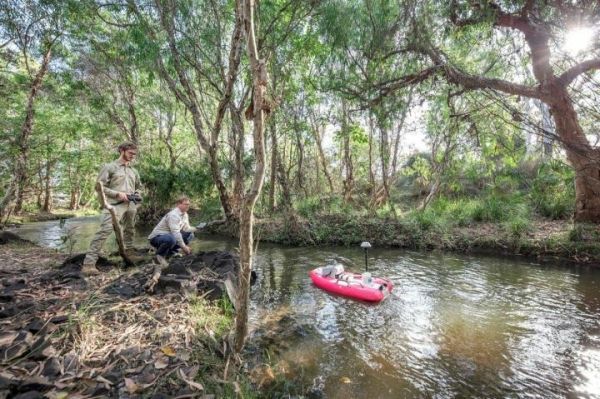New, lower-cost help may soon be on the way to help manage one of the biggest threats facing the Great Barrier Reef.
That threat is pollution from land making its way downstream by way of the many rivers and streams that flow into coastal waters along the reef.
The size of the reef – which stretches for 2,300 kilometres along the Queensland coast – makes it extremely hard to get an idea of what’s happening in real-time.
Now, in collaboration with scientists at the Queensland Department of Environment and Science, researchers at the ARC Centre of Excellence for Mathematical and Statistical Frontiers (ACEMS) have developed statistical predictive tools that could lead to the deployment of many more low-cost sensors in those rivers and streams.
Read more at Queensland University of Technology
Image: These are WQI team members. (Credit: Queensland Government)


